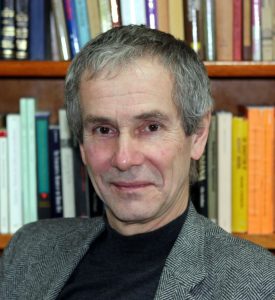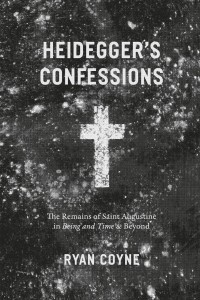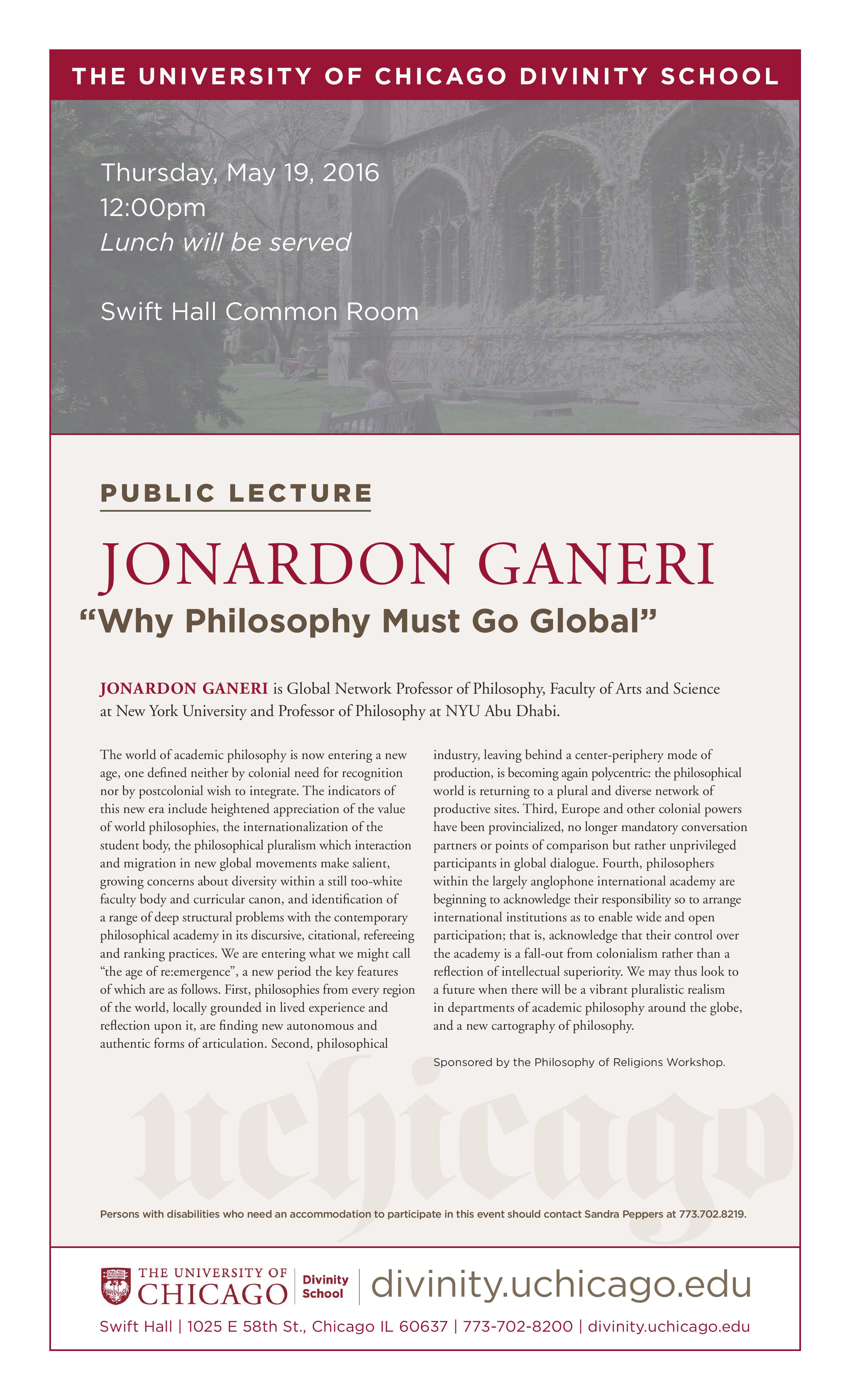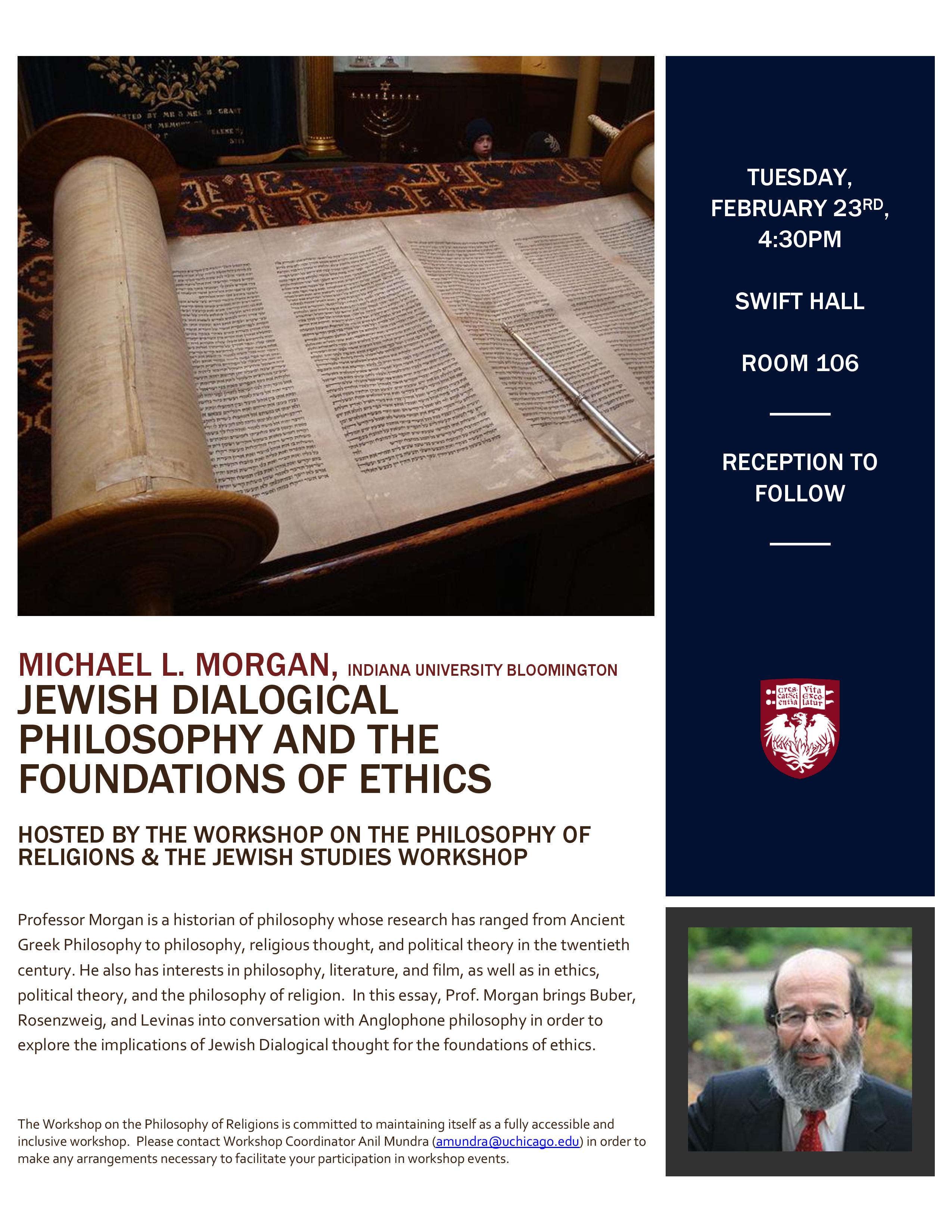Workshop on the Philosophy of Religions
2015-2016 Call for Papers
The Workshop on the Philosophy of Religions welcomes proposals for papers, presentations, mock-job talks, and panel discussions for the 2015-2016 Academic Year. Given the broadly interdisciplinary nature of our endeavor, we welcome work from the Divinity School‘s doctoral programs in Philosophy of Religions or Theology or Ethics, the departments of Philosophy, Comparative Literature, Classics or History, area studies programs such as SALC, EALC or NELC, and so on. The essential criterion for inclusion is a willingness to treat the objects of inquiry with philosophical seriousness, and (what amounts to the same) an interest in mining those objects for lessons of general philosophical import.
Paper or presentation proposals should be submitted to Anil Mundra, Workshop Coordinator (amundra@uchicago.edu) and should be suitable for a 90 minute workshop session (leaving between 45-30 minutes for questions and discussion). Papers may be distributed to attendees prior to the workshop meeting, but need not be, depending on the author’s preference. We welcome paper and presentation submissions throughout the year, but please submit your proposal at least 2 months prior to your proposed presentation date. While each year the Workshop seeks out papers pertaining to our chosen theme, we also welcome papers that do not explicitly address such concerns, particularly work relating to dissertations-in-progress, conference presentations, and mock job-talks.
This year’s theme: Comparison

The Workshop on the Philosophy of Religions will focus on the theme of comparison during the 2015-2016 academic year. Throughout the year we will host thinkers who pursue questions including, but not limited to, those regarding epistemological, metaphysical, methodological, ideological, and ethical dimensions of comparison in context of the academy and more broadly.
Many philosophers of religion work comparatively in some way, juxtaposing disparate thinkers, texts, philosophical and religious traditions in hopes of generating a clearer, more critical, or more comprehensive philosophical understanding of religion and the ways that religion accords with and departs from philosophical rationality. Meanwhile, comparative methods in religious studies have largely fallen out of favor. Critics often charge such an approach to the academic study of religion as distortive at best, violent at worst. How feasible are such critiques? Without jettisoning the very useful lessons they teach us, is it possible to retrieve a methodology of comparison? Is comparison part and parcel of any rational reflection? If so, what do these critiques of comparative studies tell us about rationality generally? Is there a future for religious studies (generally) and philosophy of religion (specifically) which works outside the bounds of comparative frameworks, or is comparativity inescapable, such that we should focus on learning better ways to compare, rather than attempting a cessation of comparison? We hope to address these and other philosophical questions related to the comparison during the coming year.







